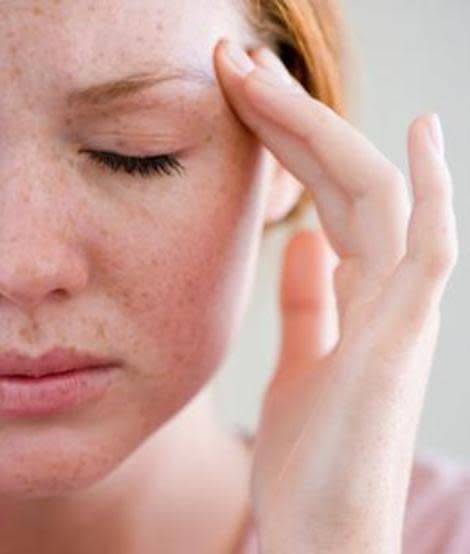Can Too Little H2O Impact Your Mood?

By Cynthia Sass, MPH, RD
It's been a perpetual debate-do you really need 8 glasses of water a day? Many experts say no, that this recommendation is outdated, but I disagree. According to the Institute of Medicine (IOM), women ages 19 and over need 2.7 liters of total fluid per day (more than 11 cups) and men need 3.7 liters (more than 15 cups). About 20 percent of our fluids come from food, but that still leaves 8 to 12 cups based on the IOM's guidelines. Studies tell us that most Americans drink about two liters of total beverages per day, but less than a quarter come from water.
Technically, non-water drinks like soda, lemonade, and sweet tea can "count" toward fluid needs, but of course, those drinks also provide empty calories (calories that aren't bundled with valuable nutrients) and can contribute to weight gain. So to replace the fluid your body loses, and stay in balance, pure water is best. Few people I know consistently drink enough, and now there's even more reason to reach for good old H2O.
RELATED: The Top 30 Most Hydrating Foods
According to a new study from the University of Connecticut's Human Performance Laboratory, even mild dehydration, defined as an approximately 1.5 percent loss in normal fluid volume, can alter your energy level and mood. The study tested 25 men and 25 women. Each was healthy and typically exercised for 30 to 60 minutes a day. In three separate evaluations 28 days apart, each test subject was put through a battery of tests that measured things like concentration, reaction time, learning, reasoning, and memory. These results were compared with a separate series of tests the subjects took when they were not dehydrated.
In the young women mild dehydration, whether after exercise or not, caused fatigue, headaches, trouble concentrating, and the perception that the tasks they were asked to perform were more challenging. In the men, mild dehydration led to difficulty with memory and, while they also experienced fatigue and anxiety, the mood changes were not as substantial as those seen among women. The scientists also noted that we don't feel thirsty until we've already become one to two percent dehydrated, when we're already feeling the cognitive effects.
The take away here is that if you always feel tired, run down, stressed, and fogy in the brain, which can lead to poor food choices and skipping the gym, a lack of fluid could be a factor.
If you're not sure, track your intake for a few days, as well as your symptoms, including other signs of dehydration, like urine that is dark in color. If you think you're not getting enough try this: Think of your day in four blocks of time 1) from the time you get up to mid morning 2) from mid morning to lunch 3) lunch time to mid afternoon and 4) from mid afternoon to dinner time. Set a goal of drinking about 16 ounces of water during each of these blocks. And if you're not a fan of plain water check out my previous post, which contains ideas for how to jazz it up healthfully.
RELATED: 15 Creative Alternatives to Coffee
Do you struggle to stay hydrated, and does it affect your mood? Please share your thought or tweet them to @cynthiasass and @Shape_Magazine.
More on SHAPE:
The Best Juice for What's Bugging You
Are You Addicted to Diet Soda?
The Worst Drinks for Your Body
